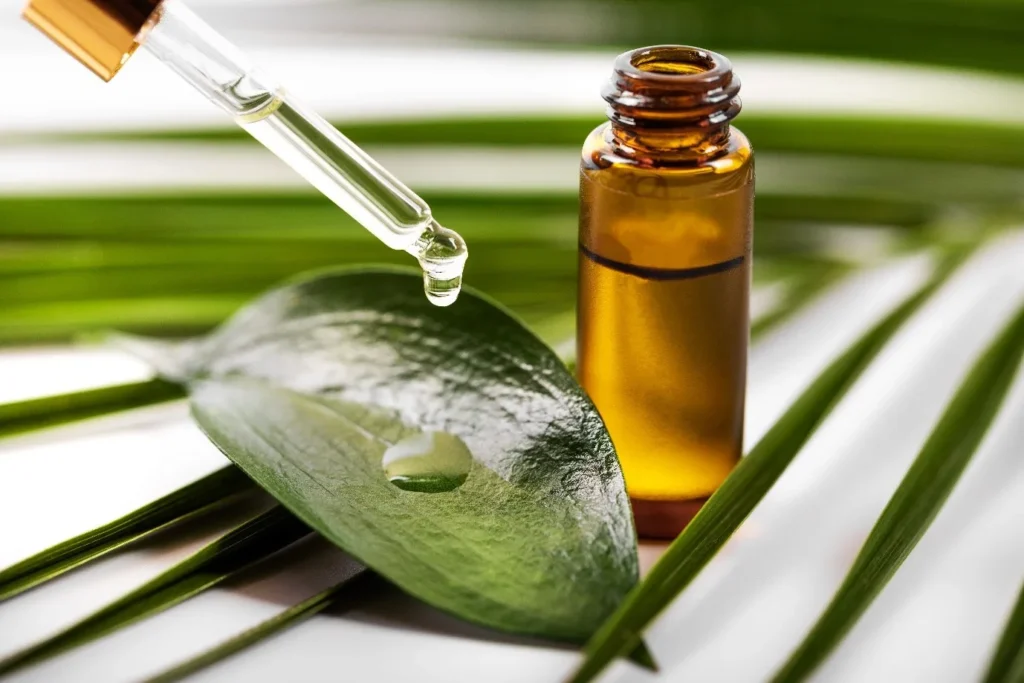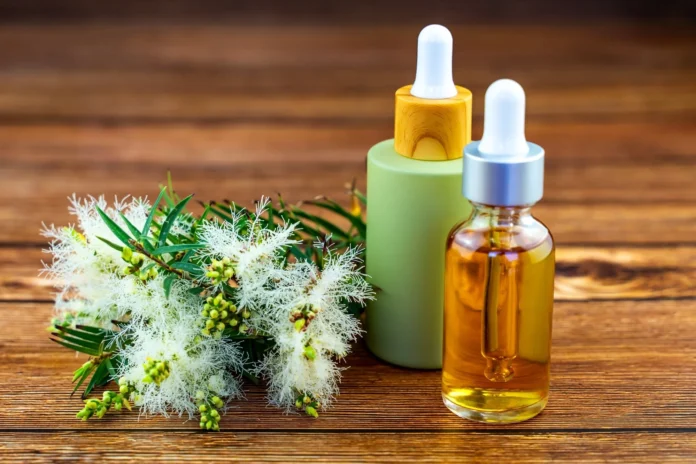Introduction

Tea tree oil, derived from the leaves of the Melaleuca alternifolia tree native to Australia, has been celebrated for centuries for its potent medicinal properties. Known for its distinctive earthy and herbal aroma, this essential oil is widely used in skincare, haircare, and holistic health practices. Here’s an in-depth look at tea tree oil, its various forms, benefits, and potential side effects.
Forms of Tea Tree Oil
- Pure Essential Oil
This is the most common and concentrated form. It is typically sold in small bottles and is diluted with carrier oils for safe application. - Diluted Oil
Some products offer tea tree oil pre-diluted with carrier oils like coconut, almond, or jojoba oil, making it suitable for direct application. - Skincare and Haircare Products
Tea tree oil is a popular ingredient in creams, serums, face washes, shampoos, and conditioners designed to address acne, dandruff, and other concerns. - Household Cleaning Solutions
Due to its antimicrobial properties, tea tree oil is used in eco-friendly cleaning sprays and detergents. - Candles and Diffusers
Tea tree oil is often used in aromatherapy to purify the air and promote relaxation.
Benefits of Tea Tree Oil

- Antimicrobial Properties
Tea tree oil is highly effective against a broad spectrum of bacteria, viruses, and fungi. It is frequently used to treat minor cuts, wounds, and infections. - Acne Treatment
Its anti-inflammatory and antimicrobial properties make it a popular remedy for reducing acne and preventing breakouts. - Dandruff and Scalp Health
Tea tree oil helps combat dandruff and soothes an itchy, flaky scalp. It may also promote healthy hair growth. - Skin Irritations
It can reduce redness, swelling, and itching caused by insect bites, eczema, or psoriasis. - Natural Deodorant
Its ability to neutralize odor-causing bacteria makes tea tree oil a natural alternative to chemical-laden deodorants. - Fungal Infections
Tea tree oil is a powerful antifungal agent, often used to treat athlete’s foot, nail fungus, and ringworm. - Respiratory Relief
When inhaled, it can help alleviate symptoms of colds and respiratory infections, clearing nasal congestion and soothing the throat. - Household Cleaning
Its antimicrobial properties make it an excellent natural cleaner for disinfecting surfaces, freshening laundry, and repelling insects.
Potential Side Effects of Tea Tree Oil
While tea tree oil is generally considered safe for most people, improper use or overuse can lead to certain side effects

- Skin Irritation and Allergic Reactions
Undiluted tea tree oil can cause redness, itching, burning, or rashes in sensitive individuals. A patch test is recommended before application. - Toxicity if Ingested
Tea tree oil should never be swallowed as it can cause severe side effects like dizziness, confusion, and even coma. - Hormonal Effects
In rare cases, prolonged use of tea tree oil has been linked to hormonal imbalances in prepubescent boys, leading to temporary breast development (gynecomastia). - Photosensitivity
Tea tree oil may increase skin sensitivity to sunlight, leading to sunburn. Always use sunscreen when applying it topically.
This Article is for Basic Information. Contact a professional doctor before using it.
HAKEEM KARAMAT ULLAH
+923090560000




